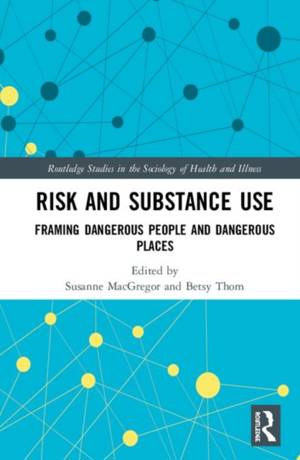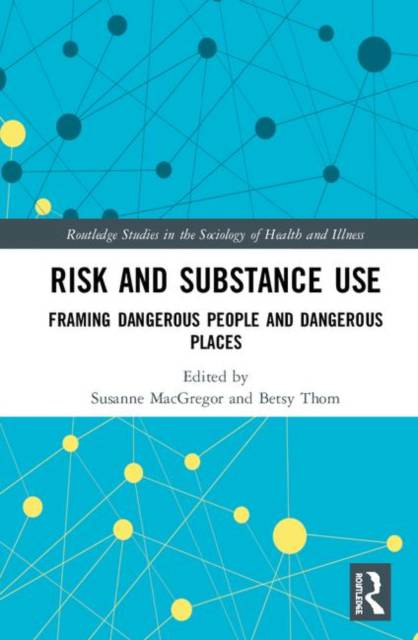
- Afhalen na 1 uur in een winkel met voorraad
- Gratis thuislevering in België vanaf € 30
- Ruim aanbod met 7 miljoen producten
- Afhalen na 1 uur in een winkel met voorraad
- Gratis thuislevering in België vanaf € 30
- Ruim aanbod met 7 miljoen producten
Risk and Substance Use
Framing Dangerous People and Dangerous Places
Omschrijving
This interdisciplinary collection examines the role that alcohol, tobacco and other drugs have played in framing certain groups and spaces as 'dangerous' and in influencing the nature of formal responses to the perceived threat.
Taking a historical and cross-national perspective, it explores how such groups and spaces are defined and bounded as well as the processes by which they come to be seen as 'risky'. It discusses how issues of perceived danger highlight questions of control and the management of behaviours, people and environments, and it pays attention to the way in which sanctions and regulations have been implemented in a variety of often inconsistent ways that frequently impact differently on different sections of the population.
Bringing together a range of case studies drawn from different countries and across different periods of time, the chapters collected here illustrate issues of marginalisation, stigmatisation, human rights and social expectations. It is of interest to a diverse audience of historians, philosophers, human geographers, anthropologists, sociologists and criminologists interested in substance use and misuse, deviance, risk and power among other topics.
Specificaties
Betrokkenen
- Uitgeverij:
Inhoud
- Aantal bladzijden:
- 262
- Taal:
- Engels
- Reeks:
Eigenschappen
- Productcode (EAN):
- 9781138491243
- Verschijningsdatum:
- 9/03/2020
- Uitvoering:
- Hardcover
- Formaat:
- Genaaid
- Afmetingen:
- 156 mm x 233 mm
- Gewicht:
- 452 g

Alleen bij Standaard Boekhandel
Beoordelingen
We publiceren alleen reviews die voldoen aan de voorwaarden voor reviews. Bekijk onze voorwaarden voor reviews.










